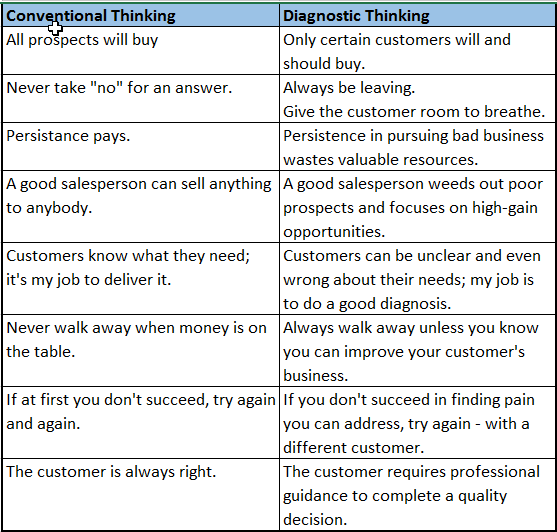Author: Jeffrey Thull
Format: Audible / Kindle
Subject: Sales
Rating: 7/10
I recently told my boss that if I had to do it again, I would have focused my early career in sales. Great sales people are immensely valuable and incredibly hard to find. A few weeks later, a member of our board of directors recommended I read Exceptional Selling. In fact, he was even kind enough to send an electronic copy of the book directly to my Kindle. But as usual, I opted for an Audible copy as well.
Thull’s research is based on some of the most successful salespeople in the world. And one key point that stuck out to me is that the most successful salespeople in the world are comfortable talking about pricing. Their comfort is driven by the understanding of the value they bring into collaborating with the customer in an effort to solve the customer’s problems. Thull also spends a lot of time covering his four-step sales sequence: “Discover, diagnose, design and deliver.”
Side Note: Hat Tip to Mickey Miller for recommending this book.
Qualities of a good Diagnostic Sales Proposal:
- Contain no surprises (good or bad.)
- Will have the customer’s fingerprints all over it (uses language and terminology used by the customer.)
- Will Solicit feedback (which allows for fine-tuning before the final proposal.)
- Will be formally presented, in part by the customers own people.

Quotes:
- We need to be professionally involved and emotionally detached from our customers.
- The customer is the judge and the jury in the sell, but you are the expert, the guide.
- Silence is a sign of wisdom. It is okay to think.
The Value Triad:
- Sources of Value
- Uses of Value
- Absence of Value
Key Thoughts:
- When you’re feeling pressure, you’re doing something wrong.
- Do not answer unasked question.
- The initial contact with a prospective customer is the most critical.
- Salespeople are guilty until proven innocent.
- When in doubt, do the opposite of what a salesperson would do!
- In absence of quality decision process, the decision will degenerate to the lowest common denominator: price.
- Diagnosis is something you do with your customer, selling is something you do to your customer.
- You can’t lose something you don’t have.
- You are either part of your system or someone else’s.
- Do Not allow the customer to self diagnose.
- One opinion does not make a consensus.
- People never say what they really mean at first.
- You must always protect the customers self esteem.
- Needs do not equal expectations.
- You have competitors; your customers have alternatives.
- The purpose of a proposal is to reinforce decisions that have already been made.
- When you are presenting on a piece of a larger solution, don’t confuse selling with installing.
- Professionally involved, emotionally detached.
- If you don’t have a cost of the problem, you don’t have a problem.
